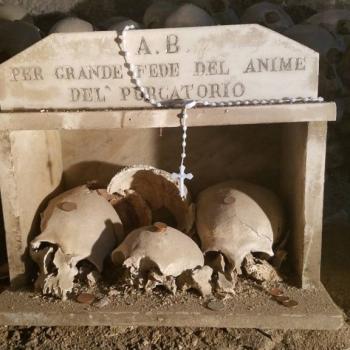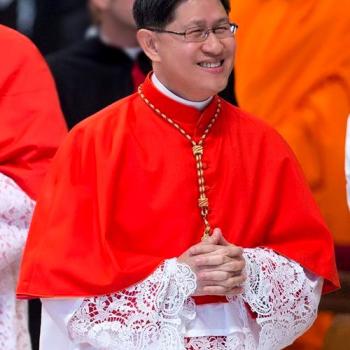
Co-authored by Dr. Ana Keila Mosca Pinezi* and Dr. Andrew Chesnut
Two factors were decisive in the election of army captain, Jair Messias Bolsonaro, to the presidency – the attack by a knife-wielding assailant and the support of Bishop Edir Macedo, the head of Brazil’s second largest Pentecostal denomination, the Universal Church of the Kingdom of God. The Evangelical vote, as well as that of conservative Catholics, made the difference in the recent run-off election. With the slogan “Brazil above all, God above everyone,” Bolsonaro appealed to Evangelicals and conservative Catholics as the candidate who would enforce the law of Moses and establish a Solomon-like reign.
The messianism of this messiah (Messias is his middle name) can be explained by conditions that facilitated his rise. It didn’t take long for the Brazilian media to compare the leftist Workers’ Party to Judas, the traitorous disciple. Thus Peter, who drew his sword to defend Jesus, reemerges in the imaginary of Evangelicals and conservative Catholics in the figure of Bolsonaro whose campaign spot in which he’s firing a machine gun wasn’t an incitement to violence but a gesture in defense of traditional Christian values that have been lost in Brazilian society.
The stabbing attack on Bolsonaro is one of the incidents that reinforces the idea that he is God’s chosen one to rebuild the nation on the foundation of traditional family values, and that’s why his life was threatened. Scenes of Bolsonaro getting ready for surgery and then convalescing at the hospital were interpreted by his Christian flock as a sort of Stations of the Cross through which the “chosen one” was passing on his way to electoral victory and to liberate the nation from the communist threat and secularism of the state imposed by successive administrations of the Workers’ Party. Thus Bolsonaro draws not only on the Evangelical symbolic arsenal but also on that of conservative Catholics who recognize him as the only solution to the trials and tribulations of the nation. In other words, Bolsonaro capitalized on the strong strain of messianism among grassroots Catholics and Pentecostals.
It’s important to keep in mind that Catholics and Evangelicals united in the Evangelical Bloc of the House of Representatives as a single voice of opposition to proposed legislation on legalizing abortion and gay marriage. In 2015 the bill known as the Family Statute was approved by the House and being debated in the Senate. The Family Statute addresses judicial rules and public policy proposing a definition of the Brazilian family as the traditional nuclear one to the exclusion of alternative ones and was proposed by the Pro-Life and Family Parliamentary Front which unites Catholic and Evangelical legislators. Thus homophobia is clearly manifest in Bosonaro’s discourse on the traditional family, which he sees as the bedrock of society and makes him the candidate of traditional morality for conservative Catholics and Evangelicals despite having had several divorces.
To all this must be added the support of influential Evangelical pastors such as Silas Malafaia of the Assembly of God, Marco Feliciano (who’s a House Representative), and the best known of them all, Edir Macedo, the billionaire founder and leader of the controversial Universal Church of the Kingdom of God. During the first round of voting Macedo not only declared his support for Bolsonaro but also aired a lengthy interview with him on his Record TV network on the same day as the presidential debate aired on the Globo Network.
In the interview Bolsonaro stated, “during the campaign the Gospel helped us a lot in reaching out to Evangelicals, Catholics and other groups and even other religions all across Brazil..” Directing his attention to the former Senator and Evangelical Magno Malta, Bolsonaro continued, “Go thank God and ask for wisdom so that we can continue on the path to the presidency of the republic.” To which Malta responded, “We started this journey praying, and God’s moves, nobody will ever be able to explain what happens..the tentacles of the left will never be ripped out without the hand of God. We arrived, began to pray and it’s most righteous that now we pray to give thanks to God.” Though he doesn’t take office until January, Bolsonaro already thanked his Evangelical supporters by ordering the Brazilian embassy in Israel moved to Jerusalem, an issue at the top of the Pentecostal agenda across the Americas.
*Dr. Ana Keila Mosca Pinezi is Professor at the Universidade Federal do Triângulo Mineiro (UFTM) in Brazil where she researches matters of religion and society. She is the author of several books and articles, such as`A vida pela ótica da esperança: um estudo comparativo entre a Igreja Presbiteriana do Brasil e a Igreja Internacional da Graça´, Editora da UFABC, 2015. Follow her on Twitter.













